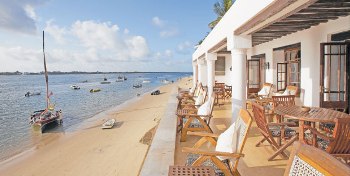Twenty years ago, land in Lamu was idle, forested and under-priced. Today, it is expensive, creating immense wealth. The archipelago is turning into a lucrative destination for everyone who wants to invest.
The county is ranked fourth in consumption per household according to the Economic Survey 2016 .
Lamu’s fortunes are on the rise. Land prices have appreciated in anticipation of huge projects such as the Sh2.5 trillion Lamu Port-Southern Sudan-Ethiopia Transport (Lapsset) Corridor.
Already, the Lamu port project has turned around the lifestyles of dozens of peasant farmers, who shared Sh860 million as land compensation for the project.
More should be compensated for a Sh204.3 billion coal power plant expected to yield 1,050 megawatts (MW) and Sh20 billion wind power project on a 3,200-acre farm expected to generate about 90MW of electricity.
The local population has also increased from 101,539 as per the 2009 census to an unconfirmed nearly one million.
Mr Alwy Abzeein, a communication consultant and former Kenya National Museum of Kenya’s Public Relations Officer, observed that such huge projects have attracted land speculators who have embarked on buying sprees, providing cash for the local population.
“People who the other day were hungry and confused are now wealthy traders and property owners outside Lamu in Malindi, Mombasa and elsewhere,” he observed.
Tourism has also created a small number of noticeably wealthy people in the Shela upper market area. Shela, which is Lamu’s version of Muthaiga and Mombasa’s Nyali, is home to European celebrities, business magnates, other foreign aristocrats and Kenyan tycoons. One acre plots here sell for about Sh20 million each.
An acre of front-row beach measured from the high water mark is worth more than Sh60 million. A quick Internet search further indicates that an exclusive sea front parcel of 130 acres is on sale for Sh500 million.
Luxury beach hotels, resorts and private villas abound, frequented by international celebrities and wealthy individuals for holidays, weddings and honeymoons.
Hotels such as Red Pepper House, Majlis Hotel and The Font at Shela Beach among others are in demand for holidays, wedding ceremonies and honeymoons, and charge between Sh50,000 and Sh100,000 per night.
Hotels, the anticipated mega-projects and billions of shillings from land sales have attracted investments, and banks have followed the cash. KCB, Gulf African Bank, Co-operative Bank, ABC Bank, DTB Bank and Equity Bank now operate in Lamu.
Growing prosperity
About 70 per cent of the local population relies on the fisheries sector, which has the potential to be the second or third-biggest employer in Lamu despite local fishermen lacking the skill and modern equipment to compete with the sophisticated trawlers used by Asian fishermen, which are capable of fishing within Kenya’s Exclusive Economic Zone.














